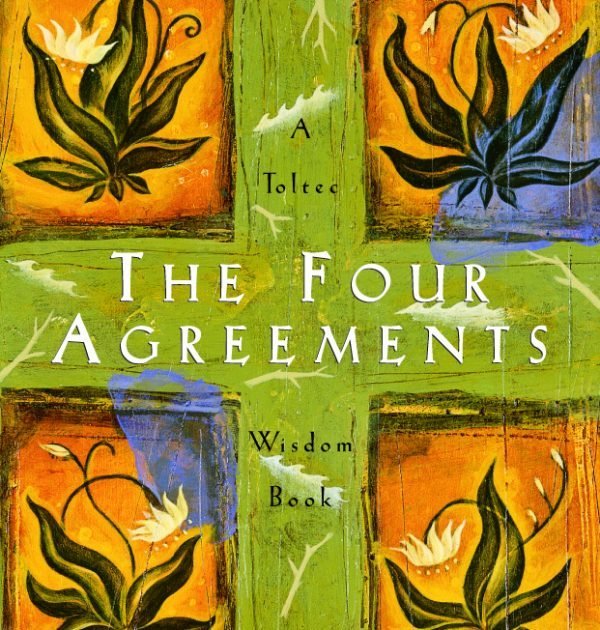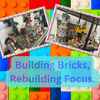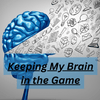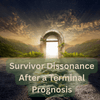How the Four Agreements Changed My Cancer Journey

How the Four Agreements Changed My Cancer Journey
How the Four Agreements Changed My Cancer Journey
When I was diagnosed with glioblastoma, a rare and aggressive brain cancer, my world shattered. But as I moved through my journey with cancer, something unexpected happened—I found profound comfort and clarity in a little book called The Four Agreements by Don Miguel Ruiz. Though written for general life challenges, each of the agreements spoke directly to my soul as someone trying to navigate life, death, fear, hope, and everything in between.
These Four Agreements are deceptively simple, yet incredibly deep:
- Be Impeccable With Your Word
- Don’t Take Anything Personally
- Don’t Make Assumptions
- Always Do Your Best
As I struggled through surgeries, radiation, chemotherapy, and the emotional upheaval that comes with cancer, I clung to these agreements like a life raft. They weren’t just spiritual principles—they became survival strategies.
1. Be Impeccable With Your Word
This agreement asks us to speak with integrity, to say only what we mean, and to use our words to build, not destroy. In the context of cancer, this became a powerful weapon against self-sabotage. When I was first diagnosed, my inner voice became a battleground. I was drowning in self-doubt, fear, and unkind thoughts. My mind whispered, “You’re weak.” “You’re not going to make it.” “You’ve let everyone down.”
But Ruiz’s reminder to be impeccable with your word encouraged me to shift that narrative. If I could not change my diagnosis, I could at least change how I talked to myself. I started replacing harmful inner dialogue with encouragement. “You are doing your best.” “You are still here.” “You are stronger than yesterday.”
I also began to apply this outwardly. When communicating with my husband, friends, and doctors, I became more mindful. Instead of hiding my fear behind a smile, I learned to say, “I’m struggling today.” I stopped sugarcoating my experience. And you know what? It helped. People responded with honesty, love, and support. Being impeccable with my word allowed deeper connection during a time when I felt most alone.
And perhaps most important of all, it helped me reframe how I spoke about cancer. I no longer said, “I am dying.” I started saying, “I am fighting.” That distinction was everything. My words became my strength.
2. Don’t Take Anything Personally
When Ruiz says “don’t take anything personally,” he reminds us that nothing others do is because of us. This agreement hit home in ways I did not expect. Cancer has a way of revealing who shows up in your life and who disappears. Friends stopped calling. Some people said the most clueless things. Others promised support but were never seen again.
In the beginning, I took it all personally. I felt abandoned. I thought I must have done something wrong. But this agreement reframed everything. People’s actions—or inactions—weren’t about me. They were about their own discomfort with illness, their fear of mortality, or just not knowing what to say.
This freed me. I stopped expecting perfect responses from imperfect people. I learned to appreciate those who showed up, even if their efforts were awkward or clumsy. And I let go of the ones who couldn’t. That shift preserved my energy—something that, as a cancer patient, is more precious than gold.
This agreement also helped me not take my cancer personally. It sounds strange, but I had moments where I wondered, “Why me?” I thought maybe it was karma, or punishment, or a result of my past choices. But Ruiz teaches that taking things personally is a form of ego. Cancer wasn’t sent to destroy me—it just is. And that detachment brought peace.
3. Don’t Make Assumptions
The third agreement challenges one of our deepest habits: filling in the blanks with stories we create. When you live with cancer, you’re faced with an avalanche of uncertainty. You wait for scan results, treatment plans, and doctor opinions. You hear statistics and horror stories. And it’s so easy to assume the worst.
I assumed that I would not make it past a year. I assumed my husband would eventually resent the burden. I assumed people saw me as fragile and broken. These assumptions created anxiety, resentment, and fear—none of which were based in reality.
Ruiz teaches us to ask questions instead. To communicate. To stay curious. That was life-changing for me. Instead of assuming my prognosis was hopeless, I asked my oncologist to explain the latest research. Instead of guessing how my spouse felt, I asked him. And instead of writing off new relationships or opportunities, I said yes—just to see.
This agreement taught me to live more fully in the present. To stop fast-forwarding to the worst-case scenario. It helped me pause, breathe, and find meaning in the unknown. Cancer thrives on fear. But clarity, it turns out, is a powerful antidote.
4. Always Do Your Best
This might be the most important agreement for anyone with cancer. Ruiz explains that “your best” will change from moment to moment. Some days, your best is getting out of bed. Other days, it is taking a walk, writing a blog, or helping a fellow survivor. The key is to honor where you are.
During treatment, I often felt like a failure. I wasn’t working. I wasn’t productive. I was tired all the time. But remembering this agreement helped me shift my mindset. My best was showing up to chemo. My best was enduring MRIs without panic. My best was letting myself cry. And on some days, my best was just choosing to stay alive one more hour.
This agreement also helped me celebrate small wins. I started keeping a journal of tiny victories: eating a full meal, laughing out loud, getting through a day without pain. Each one mattered. And collectively, they reminded me that life still held joy—even amidst struggle.
“Always do your best” also helped me let go of comparison. I stopped measuring my healing against others. I stopped comparing my body to what it used to be. I focused on what I could do—not what I had lost.
Why Don Miguel Ruiz’s Teachings Matter in Cancer Recovery
Don Miguel Ruiz’s wisdom in The Four Agreements is drawn from Toltec spiritual philosophy. What makes his teachings so powerful is their simplicity. These are not complicated theories or clinical instructions. They are reminders of how to be human—even when your world is falling apart.
For those of us facing cancer, clarity and compassion are everything. These agreements offer both. They meet us where we are—scared, hopeful, tired, determined—and give us a framework for staying grounded. I come back to them again and again, especially during the darkest moments of my journey.
I read Ruiz’s book before my diagnosis, but I didn’t truly understand its depth until I was knee-deep in the chaos of cancer. Now, I see it as a lifeline. It doesn’t promise healing of the body—but it absolutely heals the mind and heart. And in my experience, that healing matters just as much.
Practical Ways to Apply the Four Agreements During Cancer
- Write daily affirmations: Use "impeccable words" to create your own mantras. Speak life into your day.
- Start conversations: If something bothers you, ask instead of assuming. It reduces conflict and builds connection.
- Track your best: Keep a “best I could do today” journal to reflect on small wins and validate your effort.
- Reflect regularly: Choose one agreement each week to meditate on, journal about, or discuss in your support group.
Final Thoughts
If you are walking through the shadows of cancer, know that you do not have to walk alone. And while you may not control the disease, you can control your mindset. The Four Agreements helped me reclaim some of that control. They grounded me in truth, taught me to love myself better, and offered peace when everything else felt chaotic.
The Four Agreements is more than a book. It is a companion. I highly recommend reading it, re-reading it, and carrying its wisdom into every chemo chair, hospital bed, and quiet night when fear creeps in.
To learn more, visit Don Miguel Ruiz’s official site or pick up a copy here.
Helpful Resources
- American Cancer Society
- More Cancer Reflections on the JohnVsGBM Blog
- Optune Treatment for Glioblastoma
Tags: Cancer, Glioblastoma, The Four Agreements, Brain Cancer, Healing Mindset, Don Miguel Ruiz, Personal Growth, Spiritual Strength, JohnVsGBM
Disclaimer: This blog is based on personal experience and should not replace medical advice. For professional help or emotional support, please consult your care team or call/text 988.


 NEW ARRIVALS
NEW ARRIVALS APPAREL
APPAREL GIFT AND HOME
GIFT AND HOME COLLECTION'S
COLLECTION'S HOPE HUB
HOPE HUB BLOG
BLOG



